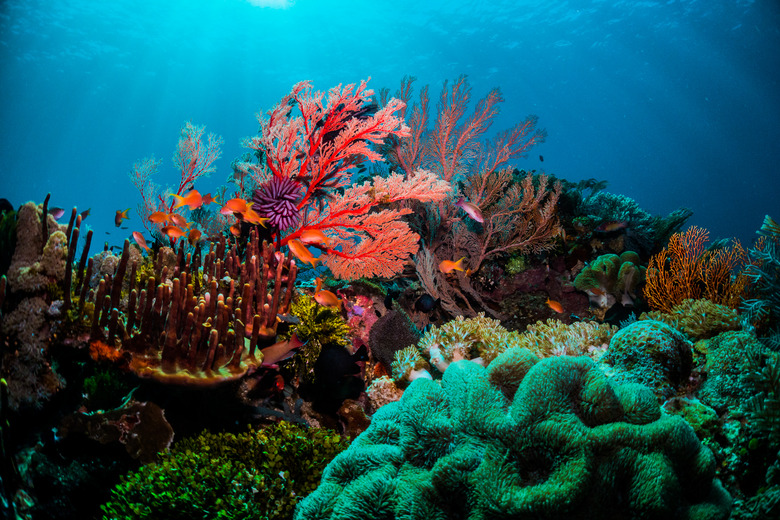How Long Do Corals Live?
Although corals look like giant sea plants or rocks, they are actually made up of millions of tiny animals. Coral reefs are like the rain forest of the ocean — they inhabit a very small percentage of the ocean floor, but they host almost 25 percent of marine species.
Coral Types
Coral Types
Coral comes in two types — hard corals and soft corals. Hard corals grow in colonies and are responsible for the unique rock-like formations associated with coral reefs. Soft corals look like plants.
Coral Polyps
Coral Polyps
Coral polyps are actually the animal that is coral. One branch of "coral," or the exoskeleton produced by coral, is covered in thousands of polyps known as a coral colony. Coral polyps consist of a tiny bag-like body with an opening lined with tentacles. As these polyps grow, they produce a limestone skeleton. After they die (usually a few years), the skeleton is used as a foundation for a new polyp, eventually building the formations of a reef.
Coral Growth and Lifespan
Coral Growth and Lifespan
It takes a long time for the tiny coral polyps to create an entire reef. Coral formations grow an average of 1 to 8 inches per year. While ancestors of today's coral date back 240 million years, today's reefs began growing more than 50 million years ago, although most reefs are about 5,000 to 10,000 years old. While entire reefs may grow this old, each coral colony has a significantly smaller lifespan of hundreds of years. And individual coral polyps may only live for a couple of years.
Coral Survival
Coral Survival
Coral reefs need very specialized conditions to survive and thus are considered very fragile. Corals are generally found in clear, shallow, salt water as they need sunlight and salt to grow. They need warm temperatures and are rarely found in water colder than 70 degrees Fahrenheit. Corals are also extremely sensitive to pollution.
Coral's Importance
Coral's Importance
Corals are home to 1/4 of the ocean's animals, including thousands of species of fish. Coral reefs also provide protection. Barrier reefs keep large waves and storms from crashing coastlines. Much of the world relies on coral reefs for food and economic production like tourism. Coral reefs also harbor potential medicinal cures in their structures and the animals that inhabit them.
Cite This Article
MLA
Simmons, Carrie. "How Long Do Corals Live?" sciencing.com, https://www.sciencing.com/long-do-corals-live-5908177/. 22 November 2019.
APA
Simmons, Carrie. (2019, November 22). How Long Do Corals Live?. sciencing.com. Retrieved from https://www.sciencing.com/long-do-corals-live-5908177/
Chicago
Simmons, Carrie. How Long Do Corals Live? last modified March 24, 2022. https://www.sciencing.com/long-do-corals-live-5908177/
